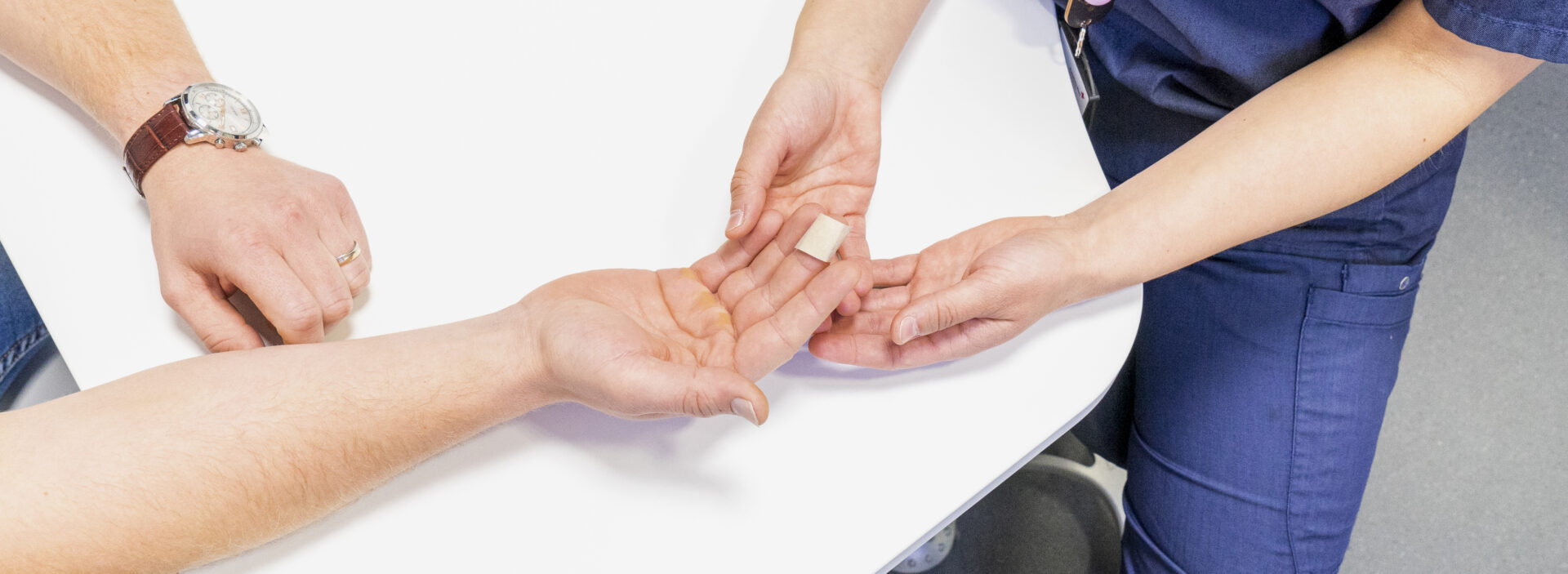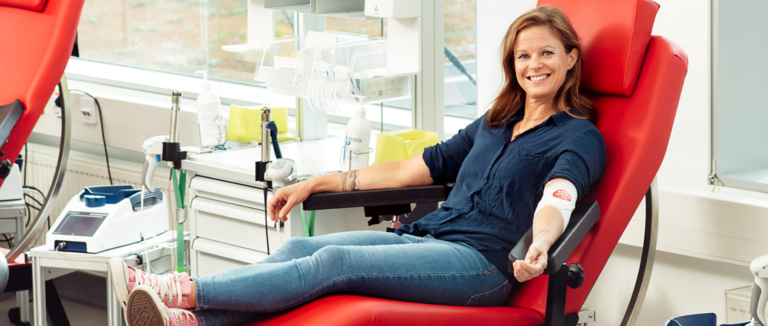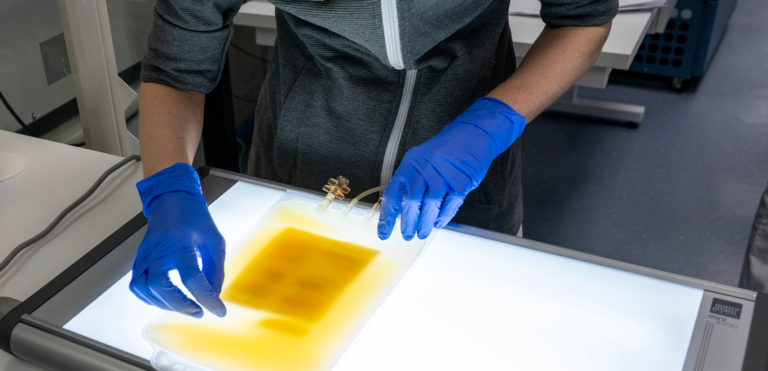5 questions about blood donation and health
New blood donors are needed in order for Finland to have a sufficient amount of blood donors now as well as in the future to secure patient care. Many people considering donating blood need information about how blood donation affects their health and whether they can be donors themselves. Janina Forstén, a doctor at the Blood Service, answers the most common questions about blood donation.

1. Can blood be donated if the donor has long-term illnesses?
When assessing the eligibility for donation, it should be taken into consideration that donating blood should not jeopardise the health of the blood donor and that the blood product should not jeopardise the health of the patient receiving blood.
Patient safety is ensured, among other things, by virus testing performed on donated blood (such as testing for HIV and hepatitis). The personal safety of the blood donor will be assessed from the perspective of what can result from losing approximately half a litre of blood in a short period of time. Particular attention is paid to people who have a cardiovascular disease, kidney disease or a tendency to faint.
For example, hypertension does not prevent blood donation, if the donor’s blood pressure can be managed with medication. Elevated cholesterol also does not prevent blood donation. Lung diseases, such as asthma, that are in good control, also do not prevent blood donation – severe asthma and COPD requiring medical treatment, on the other hand, do. Also a myocardial infarction or cerebrovascular disturbances, among others, prevent blood donation.
Tablet-managed diabetes does not prevent donation, but insulin-managed diabetes does. Most mental health disorders and illnesses do not prevent blood donation.
2. Do medications affect the eligibility to donate blood?
There are very few drugs that, as such, prevent blood donation. With red blood cell and platelet products, only a very small amount of plasma and the drug bound to the plasma is transferred to the patient. The plasma used for plasma drugs is processed in large batches combined with plasma collected from multiple blood donors.
In most cases, drugs used by a blood donor are assessed based on the reason why they are used, and the key factor is whether the disease that the drug is taken for prevents blood donation. For example, antihypertensive medication, statins, contraceptive pills, and most psychotropic drugs do not prevent blood donation as such. Natural drugs, herbal remedies, supplements and vitamins also do not prevent blood donation.
Blood donors in Finland primarily determine their eligibility for donation in advance, for example, through our website or our donor helpline, as, compared to the rest of Europe, we receive the smallest numbers of persons who cannot donate at a particular visit.
3. Can blood donation cause iron deficiency anaemia?
During blood donation, the donor loses about 250 mg of iron, which equals about a quarter of the amount of stored iron in a man and most of the stored iron a woman. Restoration of stored iron on a normal diet is individual and can take up to several months in some people. After each donation, the Blood Service distributes iron supplementation to all women under 50 years of age and all those who have donated whole blood less than 4 months ago.
Research indicates that the donation interval is the single most significant factor affecting the stored iron in blood donors. For women 18–25 years of age, blood donation is recommended no more than once a year, and for other women, no more than 2–3 times a year, and for men, no more than 3–4 times a year.
The recommendation differs clearly from the minimum donation intervals (91 days for women and 61 days for men). The minimum donation interval comes from the European expert recommendation and allows for the blood donation of persons who have a naturally higher haemoglobin level or, for example, haemochromatosis every 2–3 months.
4. How does Blood Service ensure the wellbeing of blood donors?
Donor safety and donor wellbeing are very important to Blood Service and steps are taken to ensure these in many ways. Blood donation should not jeopardise the health of the blood donor, and the donor’s health and any medical conditions will be taken into account when assessing eligibility to donate in accordance with specific instructions.
The Blood Service staff have been inducted in their work and further training is organised regularly. Before the donation, the donor completes a health questionnaire, which will be reviewed together with the nurse at the donation point.
The donor’s blood haemoglobin level is measured before every donation. It must be at least 125–175 g/l for women and 135–195 g/l for men. Women and men have different minimum donation intervals.
After the blood donation, the Blood Service serves something to drink and eat, and the blood donor is instructed to take it easy for the rest of the day and to avoid, for example, going to the sauna and exercising strenuously. An iron supplement is distributed to the risk groups for iron deficiency.
In addition, the Blood Service has its own research activities related to, for example, donor health.
5. Are there any risks associated with blood donation?
Blood donation is safe for healthy people. In rare cases, there may be adverse effects associated with donation despite preventive measures.
The aim is to prevent adverse effects, for example, through a health questionnaire and interview, orientation and training of staff, serving refreshments to donors, and instructing donors after the donation. The needles and other supplies used in blood donation are always disposable.
The most common adverse effects related to blood donation are nausea (15/1,000) and fainting (1.5/1,000). Very rare adverse effects include nerve stimulation (0.4/1,000) and large bruises (0.3/1,000).
All blood donors are insured against adverse effects or accidents caused by blood donation. Adverse effects are monitored systematically and are taken into account when inducting and training staff.
You can assess your eligibility for blood donation in advance by performing the sovinkoluovuttajaksi.fi quick test, by completing the health questionnaire for blood donors or by calling the free donor helpline at tel. 0800 05801 (Mon to Fri 8 am to 5 pm). The Blood Service website also contains a comprehensive list of frequently asked questions: veripalvelu.fi/en/faq/



